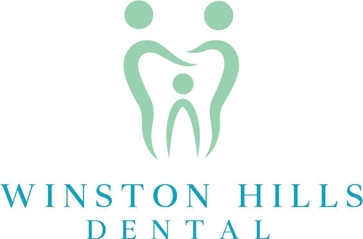Having dentures can be a great way to improve your appearance and your self-confidence. However, if not taken care of properly, your dentures can become discoloured and stained.
To help ensure that your dentures look great, here are some simple cleaning methods that will help you achieve spotless dentures.
In this article, you’ll learn about preparing to clean, daily care, cleaning solutions, brushing techniques, deep cleaning, and storage tips.
Preparing to Clean
Before beginning the cleaning process, it is important to prepare your dentures properly. This is especially true for those with complete dentures, as they are not attached to natural teeth.
Start by gathering the following supplies: a soft-bristled toothbrush, warm water, regular toothpaste, cold water, mild soap, and denture adhesive if necessary.
Place the false teeth in warm water and use the brush to remove any food particles gently. Then, rinse the dentures in cold water and use mild soap to cleanse the surface.
Finally, rinse the dentures again in cold water and dry thoroughly with a soft cloth.
Following these steps will help ensure spotless dentures.
Daily Care
To maintain your spotless dentures, it is important to practice daily care. Use a denture cleaning solution and a soft toothbrush to remove plaque buildup and keep your dentures clean. Clean your dentures every day with a gentle soap and lukewarm water.
Keep your mouth clean by brushing and rinsing your artificial teeth the same way you would your natural teeth. You can also soak your dentures in a solution of lukewarm water and white vinegar for up to an hour a day. This will help dissolve any debris and keep your dentures sparkling.
Regular cleaning is essential to keep your dentures looking and feeling as good as new.
Cleaning Solutions
By using specialized cleaning solutions, you can ensure that your dentures stay in top condition. Denture cleansers, denture cleaning tablets, denture brushes, and denture care products are all helpful in keeping dentures clean. Non-abrasive denture cleaners are best for keeping dentures from becoming scratched or damaged, and special denture cleaning solutions are available to help remove stubborn stains. Following the instructions on the denture care products is important for keeping dentures in peak condition.
Regularly cleaning dentures with the appropriate products and solutions can help keep dentures looking and feeling their best. Taking good care of dentures is essential for maintaining oral health and hygiene.
Brushing Techniques
Using appropriate brushing techniques is an important part of maintaining clean dentures. Denture cleaning tips include brushing dentures daily with a regular toothbrush and warm salt water. This helps remove food debris that can accumulate and cause plaque to form on the dentures. Proper denture care also includes using a soft-bristle toothbrush and toothpaste with dentures to make sure teeth are clean. It is also important to avoid using too much pressure when cleaning dentures, as it may damage them.
To ensure dentures stay clean and healthy, it is important to use the correct brushing techniques and regularly maintain them. Following these steps will help ensure spotless dentures.
Deep Cleaning
In addition to brushing properly, deep cleaning dentures is essential for achieving spotless dentures. Incorporating a denture cleaning routine into your daily practice of denture care basics is key to keeping your dentures looking and feeling their best.
For most people, this involves using a denture tablet with a denture toothbrush or a specialized denture cleaner. If your denture needs a more thorough cleaning, you can also use a denture soak. But be sure to use clean water and to follow the instructions provided by your denture professionals.
Additionally, it is important to make regular dentist appointments to ensure the health of your denture teeth. As long as you take the necessary steps to maintain your dentures, you can look forward to having spotless dentures for years to come.
Storage Tips
For optimal denture care, it is important to store dentures properly when they are not in use. Ideally, dentures should be kept in a dry and clean container with lukewarm water. It is important to note that dentures are made of fragile denture material and can easily become damaged due to moisture.
To ensure dentures remain in top condition, a denture consultation with a dental professional is recommended. During the consultation, your dental professional can provide specific instructions for how to store your dentures. They may also suggest a daily denture cleaning routine to keep your dentures looking and functioning as they should.
When storing your upper denture, it is important to use cool water and a cleaning solution to ensure proper hygiene. Additionally, avoid leaving your dentures in water for long periods of time as this can lead to discolouration and degradation of the denture surface.
Key Takeaways
Dentures can be kept spotless with a combination of daily care and cleaning solutions. Brushing techniques should be used regularly with a soft-bristled brush, and cleaning solutions should be used to remove bacteria and food particles.
For deeper cleaning, a denture cleaning solution can be used, and dentures should be stored in water when not being worn.
With regular care and maintenance, dentures can remain in great condition for a long time.If you need help keeping your dentures clean and in good condition, look no further than Winston Hills Dental. Located in Winston Hills, NSW, our experienced dentists provide the highest quality care and will help you keep your dentures looking and feeling like new. Contact us today to book an appointment and learn more about our denture cleaning services.

